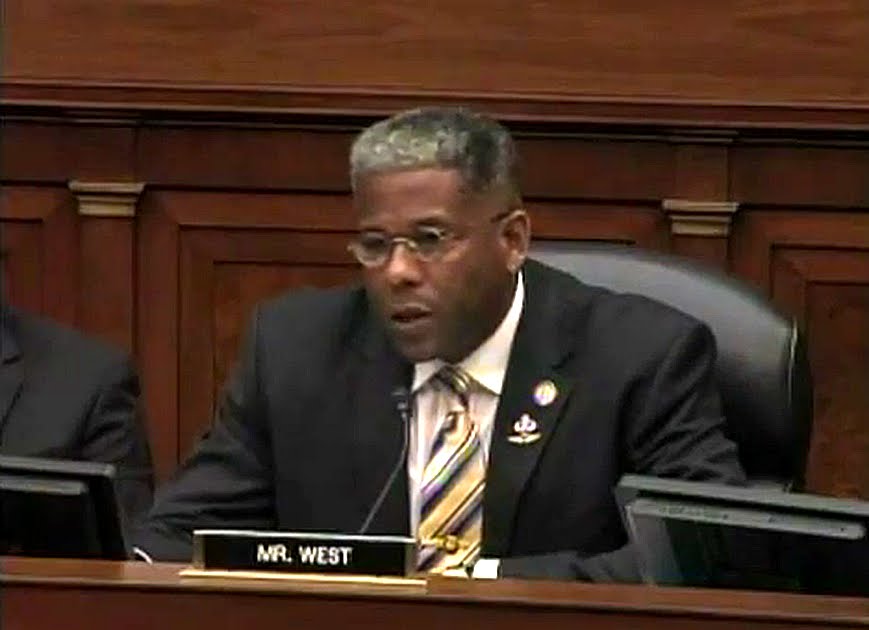Allen West Q&A during the Politicizing Procurement Hearing on the DISCLOSE executive order VIDEO
Our Federal Government Shouldn’t be Asking Who’s a Democrat and Who’s a Republican in the Procurement Process, Graves and Issa hold joint hearing to examine DISCLOSE executive order.
WASHINGTON, D.C.— House Small Business Committee Chairman Sam Graves (R-MO) and House Oversight and Government Reform Committee Chairman Darrell Issa (R-CA) today held a joint Committee hearing to examine President Obama’s proposed Executive Order mandating the disclosure of political donations by government contractors as a prerequisite to receiving a government contract, and evaluate its impact on and consequences for the federal acquisition system.
Since the leak of this proposed executive order in April, Chairman Graves has led the opposition against this attempt to politicize the procurement process. On April 21st, Chairman Graves sent a letter to President Barack Obama objecting to the proposed executive order.
“Our federal government shouldn’t be asking who’s a Democrat and who’s a Republican in the procurement process. They ought to be asking who can get the job done well and for the least amount of taxpayer money. Forcing small businesses to disclose political records will allow this Administration to intimidate the business community and reward political allies. It will also force small businesses out of the federal marketplace due to the burden of additional record-keeping administrative duties, the potential civil and criminal liability of miscertification and fear of losing contracts for making the wrong donations. The result will be continued job loss and another blow to our already faltering economy.
“The Administration claims the donation information won’t be used in the decision making process—so the question lingers as to why they would need this information ahead of making the award. This doesn’t pass the smell test if you ask me.
“It is my hope that the President listens to the chorus of opposition from both Republicans and Democrats and abandons this Executive Order.”
Notable Witness Quotes:
Ms. Marion Blakey, CEO or the Aerospace Industries Association, said, “I am here today representing 393 member companies of the aerospace industry and their 800,000 U.S. workers to express our grave concerns about the provisions contained in the draft Executive Order (EO), “Disclosure of Political Spending by Government Contractors. Political contributions should never be considered by any procurement officer when making a decision to either award or deny a contract to any entity. Does providing this information to a procurement official make them any better informed on the merits of a proposal, or simply make them better informed on who has made political contributions to the administration or any other federal candidate?”
Mr. Alan Chvotkin, Executive Vice President and Counsel, Professional Services Council, said, “The truth is that political contributions currently are not, and should not, be disclosed as part of the bidding and source selection process for federal contract awards. Despite the repeated efforts by some to show a link between campaign contributions and contract awards, I am pleased that there is no evidence that campaign contributions—for either president or Congress—have had any impact on any agency’s procurement evaluation or award decisions. Yet the draft executive order takes the ill-conceived approach of injecting that very information into the contracting process, forcing all bidders for federal contracts to collect and disclose that information as part of their bid.”
Mr. Bradley A. Smith, Professor of Law at Capital University Law School in Columbus, Ohio said, “Such an order is, in my mind, ill-advised and represents an attempted power grab by the Obama administration on campaign finance issues. In short, it has three major flaws: it imposes junk disclosure requirements that serve no good purpose, it chills protected political activity, and it seems motivated by simple partisan politics. …[S]kepticism is called for when government begins to regulate political speech. This is because of how incumbent governments, politics, and the enforcement process work. The history of ―reform is in part a history of efforts to silence or cripple political opponents. This current initiative seems no different.”
Contact: DJ Jordan, Wendy Knox 202.225.5821
RESOURCES: Politicizing Procurement: Will President Obama’s Proposal Curb Free Speech and Hurt Small Business? witness testimony and other related hearing documents FULL TEXT in PDF FORMAT.
VIDEO and IMAGE CREDIT: SmallBizRepublicans
TEXT CREDIT: House Small Business Committee 2361 Rayburn House Office Building (RHOB) Washington, D.C. 20515 Phone: (202) 225-5821 Fax: (202) 226-5276
